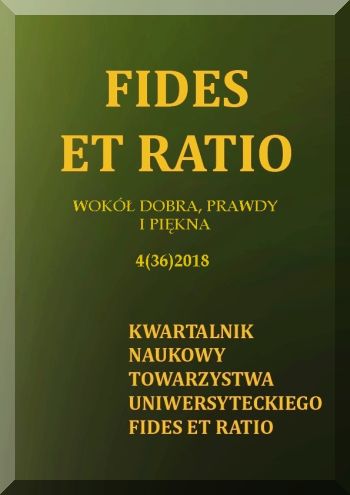Abstract
When we discover Truth in the surrounding reality, we generally do it on the basis of objective inquiry and by describing it using logical reasoning.
But when we encount the Absolute Truth that is God, we have a personal relationship: with God, who is One in Trinity. This uncanny and mysterious personal structure of God is a unique “experience, ” which makes it possible for us to also experience the Truth, supported by faith, in Its greatest extent. Of course, as much as we open up to It and attempt to live It by ourselves, supported by Divine Grace.
Over a hundred years of the experience of Laski in the attempts to fully live the Truth, that is embodied in “Triuno” of Mother Czacka, allow us to hope that, despite encountering this accumulation of suffering related primarily to visual impairment, or perhaps exactly because of it, the Truth in its fullest extent takes on a particular meaning, giving our life the deepest sense.
References
Czacka Matka Elżbieta E., (2007), Dyrektorium, M. Banaszak, M. Prussak (oprac.), przy współpracy K. Michalak, M. Prussak (red. naukowa), Warszawa: Wydawnictwo Uniwersytetu Kardynała Stefana Wyszyńskiego.
Czacka Matka Elżbieta, E., (1976), Triuno, (w:) Chrześcijanie, t. 2, B. Bejze (red.), s. 253-261, Warszawa: Akademia Teologii Katolickiej.
Franciszek papież, (2016), Miłosierdzie to imię Boga. Rozmowa z Andreą Torniellim, Kraków: Wydawnictwo Znak.
Granat W., (1982), Bóg Jeden w Trójcy Osób, Lublin: Towarzystwo Naukowe Katolickiego Uniwersytetu Lubelskiego.
Granat W., (1985), Personalizm chrześcijański. Teologia osoby ludzkiej, Poznań: Księgarnia św. Wojciecha,
Jaworski R., (2001), „Zmysł religijny” – wymiar psychologiczny, (w:) Wychowanie człowieka otwartego, A. Rynio (red.), s. 110-113. Kielce: Wydawnictwo „Jedność”.
Nowak M., (2008), Teorie i koncepcje wychowania, Warszawa: Wydawnictwo Akademickie i Profesjonalne.
Nowak M., (2011), Interdyscyplinarny klucz w teorii i praktyce pedagogicznej Lasek, (w:) Środowisko Lasek w perspektywie historii i chrześcijańskiej myśli pedagogicznej, J. Placha (red.), s. 186-204, Warszawa: Wydawnictwo Uniwersytetu Kardynała Stefana Wyszyńskiego.
Placha J., (2012), Integralny model rewalidacji na podstawie „doświadczenia Dzieła Lasek”, Warszawa: Uniwersytet Kardynała Stefana Wyszyńskiego.
Tarnowski J., (1991), Człowiek – dialog – wychowanie. Zarys chrześcijańskiej pedagogiki personalno- egzystencjalnej, Znak, nr 9 (436), s. 69-78.
